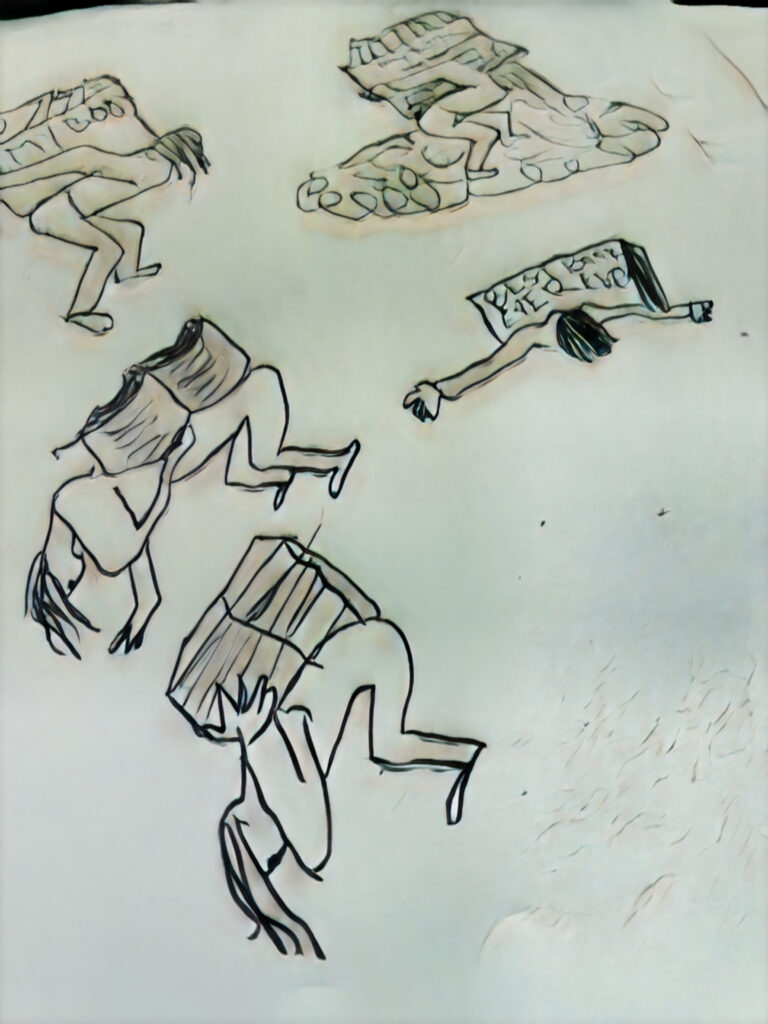
BIRTH of a Book 10 responses
HOW TO WRITE A NOVEL – AND GET IT PUBLISHED
I am always asked, ‘how long did it take you to write?’ ‘What was the process of editing?’ ‘How did you get an agent/publisher?‘
My beautiful RAGAZZO is to be published by Alien Rabbit on 26th September 2024 seven years after I wrote the first word.
On 1st February 2019 I posted ‘My Novel’s Finished!’ and proudly boasted that it had taken two years to write. Little did I know! My baby had so many babies. My hard disk is creaking, (and that’s not just the hard disk of the computer!) with about 16 versions of the RAGAZZO. Edits, re-edits, revisions, rewrites.
My email outbox is jammed with my brilliantly written offers to agents and publishers. My inbox, in contrast, with few responses, mostly form rejections. A few reports from fiction ‘experts’ loving the book, carping about irrelevances to justify the silly fees they demand.
PART 1: THE WRITING

It starts with those magic words, ‘what if – ‘. Sparked, usually by a person, a word, an experience, a location – an idea. Then that seed starts to grow and grow. First, it invades the head, then the heart, and pays a visit to the loins too. Is it a unique Whatif? Is it exciting? Crazy enough? (that’s me – a Whatif doesn’t have to be crazy to be viable! Providing plot and character can be tied in beautifully)
My Whatif was sparked by Julius Caesar. Or, to be accurate, Giulio Cesare by Händel. I watched this clip by mistake: Va Tacito (Glyndebourne) and was tickled as if by a feather at the feet wielded by a eunuch – not just the hilarious Silly Walk but the music! What a great and catchy tune. So I watched the rest of the Opera. And thought, so many great and catchy tunes I had to watch hundreds more Baroque operas. The convoluted, often absurd plots and pomaded puffery of the productions! Even those in modern dress are artificial beyond artifice. And some of the music is heartrending, life changing. Try this: Ombra mai fu with Andreas Scholl.
So I plunged into Wiki to find out why some of these leading men sing like a girl – and discovered that for more than two hundred years thousands of young boys were castrated to preserve their high voices.
This is abuse on a massive scale, for art.
So there are thousands of Whatifs, waiting to be explored.
Each one an amazing story.
Where to start. So I started with two fat rich old men in a brothel long after the practice had been outlawed, exploring a Whatif. Whatif they were to create a Castrato – could they revive the long dead operas of Händel?
Snowball rolls downhill. Uphill. Up the mountain through a valley but up the metaphors already. The writing pours out. Every day I couldn’t wait for the next day to find out what happens next. I don’t plot my books. My characters do. In this case, however, I decided to let Händel plot the finale.
Two years later I had a completed manuscript. It had pictures, too. The pictures in my head were so vivid, I had to search the web for the nearest approximations.
Finishing the writing was only a third of the process. After the creative explosion, comes the cleanup of the editing. Rewrites. Doubts. New ideas.
This is when, dear reader, you MUST find two types of Editor – a Developmental Editor and a Copy Editor. Sometimes they are the same person.
The Developmental editor (there are different titles for this person – ) must check for plot flaws, contradictions, continuity, flow, style, character consistency, believability. Remember, the good liar has to have a good memory. As a writer of fiction, always remember the meaning of the word. (Your job is to reveal the truth through lies, ok?)
The Copy Editor‘s job is to thoroughly check your spelling, grammar and punctuation, paragraphing, layout and the physical appearance of the ms on the page. There are templates available – publishers have very strict rules about the manuscripts they will consider for publication.
Where do you find your editor/s? Google is your friend. There is a massive amount of help out there, and many writers’ organisations who’ll fall over themselves to recommend editors. Google one or many of the following: Reedsy, Jericho Writers, The Literary Consultancy – editing costs between £500 and £2,000 – it’s essential. Sorry. That’s why all these organisations exist – for their cut. Some charge subscriptions. Everyone is after your money, except me.
I found a wonderful editor through Reedsy – Joie Davidow is not just an editor, she’s a novelist and an opera singer. Couldn’t be better! And she loves the book. It takes time, of course. Weeks. During which you live on a diet of fingernails and junk food.
Eventually, your manuscript pops back on your desktop – covered in flourishes of changes, annotations, comments and queries. Nightmare. Time to connect with your editor, to discuss. Time for Zoom. Or Teams. Or that Google Meet thing. Shared screens. Arguments and accommodations. Don’t assume your editor is always right! Don’t assume your editor is always wrong! Above all – don’t let your editor suck your style out of you ok? Although bear in mind that s/he has probably critically edited dozens of books, and does know a thing or two.
The dust settles. The manuscript is finalised. There isn’t another word or paragraph that needs fixing. (Oh yeh? If you’re me, you keep thinking of changes, right up to the Author’s Proof stage. I drive them crazy.)
PART 2: PLACING THE BOOK
So you think you’d like an Agent? All the advice to writers sites will tell you to craft a beautiful ‘Query’. A Query is simply your offer letter, which includes a brief description of the book, why you think that Agent would be right for you, (having carefully checked their website to find an agent who represents writers for your genre), a one page synopsis and the first 10,000 words of your book. There’s TONS of advice on creating the perfect query. There are courses. Google is full to bursting with the stuff. Go on, type ‘perfect query’ into Google.
Reality check: most agents are young women aged 25 – 35, upper class Oxbridge grads with a daddy in publishing. Some of them get up to sixty (60) (6 tea) query letters a day. Many of them will take on a maximum (Max!) of ONE new client a YEAR. These are the gatekeepers. The effective barrier against any new, innovative, creative, experimental fiction.
Still want an Agent? O.K. Get hold of the latest edition of the Writers and Artists’ Yearbook, first. Either a physical copy or online (if you register online you get a discount. I told you everyone wants their cut). I suggest a physical copy from Amazon so you can write all over the entries. Things like ‘sent 3/5/24. NO 5/10/24.’ Or ‘sent 23/6/24. No Reply as at 23/12/25’
Most agents don’t reply.
I tried 23. My Query was superb. Crafted, sculpted adapted to every individual agent I sent it to.
It’s bollox mate. Some people report over 300 queries sent out over a period of 18 months without success. For every JK Rowling (12 publisher rejections and over 60 agent rejections I think) there are thousands of you and mes humping our goods from in-box to in-box.

NEXT STEPS:
- Craft the perfect ‘Query’ : The Writers’ Digest helps.
- Send to 10 carefully chosen agents, specialists in your genre, adapted to each. They want 10,000 words, a synopsis and a biog usually.
- Receive the few rejections they bother to send and have another coffee, glass of wine or favourite drug.
- Create the perfect ‘Offer’ letter. Send to the few big publishers who accept submissions direct from authors. Some have ‘offer windows’, at particular times of year.
- Receive the few rejections from those who bother to send them. Make wallpaper from them, then paint the wallpaper black (keep a record!)
- Do what I did. Throw the whole fandangled fussery into your trash. Have another drug or two.
- Then do what I did next: write to a few small publishers, the indies who actually care about good writing. Small publishers: Bloomsbury Press was a tiny indy until they said ‘yes’ to JK Rowling. Type UK Independent publishers into Google. Explore their websites, to find out if their genre suits yours. Write your offer from the heart, ignore all the rules.
- And IGNORE all the ads from the Pay-for Play boys, the Vanity Press, the ones who want your money above all. Up to and until there are no further options, and Auntie has left you a few grand in her will. Some of these are better than others. Some do a good job. Most don’t. Do your research! Find genuine feedback from their authors.
- Look at the Writer Beware Facebook group for warnings about all the crooks out there. There are fake Agents – clue: they ask for money. Fake publishers – clue: they ask for money. Research anyone who contacts you: basically, if they contact you, rather than you contacting them, they are probably crooks.
GOOD LUCK and MUCH LOVE to my fellow wordsmiths, you brave wonderful people you!
I’m nearly finished “Being Leased”, my memories of my years as a tenant. It looks like a long and frustrating road to get published. How do I know if it’s time to self-publish?
Thanks for this! Can I send you my book? It’s a Romance, girl meets the boy of her dreams, but he is Gay. Can she convert him? I don’t know what to do with it tho I know it happens to lots of girls
Thank you for responding Nolan. Have you offered the book to agents/publishers? I would be happy to look at the first chapter and a synopsis, but I do have a tremendous workload so will not be able to respond quickly. I wish you every success. Please use johnelkon@yahoo.co.uk
Good info thank you
I sent out 27 queries to agents got 4 responses from people who actually read it, 7 from people who didn’t and no reply from the rest. Am I rubbish or are they?
Best advice ever. Look out for “Marie Stopes’ People’ probably in a couple of years!😊 I’ll keep you informed
I have written 12 short stories. I want to call it Baker’s Dozen because that’s my last name. Should I self-publish? Can I send them to you?
I submitted my synopsis to two agents, both wanted more. To give you a clue APW and CB. How do I choose?
I had a similar experience with my first book – sent it to 3, got two requests to see more, one returned to sender address unknown! Then, when I sent them the whole ms, both wanted to represent me. In the end I chose the wrong one, I went for the hungry youngster instead of the grizzled old hand. As a result, once my pet shark stopped agenting in order to write novels, I had no agent!
We are both fantastically lucky – or talented. It’s as rare as getting a one twice in a row on Worldle.
Submit the whole ms to both. It’s only fair to inform both agents that you are submitting to the other.It’ll make them more keen. Then, if both say they want to represent you, (assuming you have had a very thorough trawl through their websites, checked for reviews from authors, and visited the Writer Beware facebook site) (NOTE: if either have asked for money they are fake!) Visit them at their offices if you can. See which is most convincing.
Let me know what happens! For further hints and tips email me.
Jy praat kak. Ek is